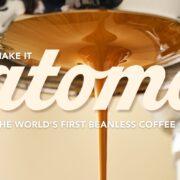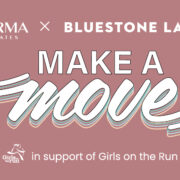Combating the Loneliness Epidemic Through Group Exercise and Café Culture
In a world where digital connections increasingly substitute in-person interactions, the issue of loneliness has reached epidemic proportions. Professor Noreena Hertz from UCL highlights that social isolation is not just a mental health issue but a public health crisis. In her book, The Lonely Century, Hertz points out that loneliness has the same impact on mortality as smoking 15 cigarettes a day (yes – you’re reading this right…). It’s linked to higher risks of heart disease, depression, and even death. Alarmingly, more young men die from self-harm than any other cause, underscoring the deep societal impact of isolation (shoutout to Aussie born Movember on their wonderful work to tackle this).
The U.S. Surgeon General, Dr. Vivek Murthy, has also warned about the dangers of loneliness, stating, “We know that loneliness is a common feeling that many people experience, but too often it is a sign of deeper, unmet needs for connection and community. This is not only a mental health issue, it can increase the risk of cardiovascular disease, dementia, and depression.” The Surgeon General’s stark warning brings attention to the profound impact that a lack of human connection can have on both physical and mental health.
So, how do we combat this?
Group exercise and café culture have emerged as powerful antidotes. Gyms and cafés, particularly those emphasizing social interaction (i.e. not drive-thru coffee chains), offer crucial spaces for connection. It’s not just about the workout or grabbing a flat white—it’s about building community. Group fitness fosters camaraderie, while meeting mates for a post-exercise coffee strengthens those bonds.
Aussies seem to have cracked the code here. The rise of Australian cafés and fitness groups like Training mate, founded by Luke Milton, and Athletic Clubs, led by Dane McCarthy , reflects this. Both fitness groups emphasize teamwork and mateship, creating environments where people not only sweat together but also connect socially. Milton’s Training Mate combines high-intensity interval training with a humble, not-too-serious, supportive atmosphere, making participants feel like they’re part of a team. Similarly, Athletic Clubs by McCarthy focuses on building community through squad training, allowing members to train hard and stay for a post-workout chat.
According to an article by InsideHook, this Australian approach to fitness centers on group effort and socialization, creating environments where people not only work out together but also stick around for a chat over brekkie. In a place like New York, where loneliness can run rampant, it’s no wonder these concepts are thriving. Socializing and proactively forming values-based communities (Fair Go, Mateship, Team First) – may be an Australian super power.
Bluestone Lane was founded with this very mission in mind: to make people feel like they are locals, part of a community where they’re recognized and personally acknowledged. At Bluestone Lane, it’s not just about serving specialty premium coffee or healthy, fresh food—it’s about facilitating & fostering human connection. We’ve always aimed to create spaces where people can feel a genuine sense of belonging – that it becomes “their local”. Ultimately, Bluestone Lane isn’t just a coffee and café company; it’s a human connection lifestyle brand. Every cup of coffee is an opportunity to engage with our customers, to provide them with a moment of recognition and personal interaction. It’s our way of addressing the isolation so many people feel, creating a modern-day village in the heart of urban centers.
This emphasis on togetherness is vital as we face the loneliness epidemic. In Australia, coffee isn’t just about a quick caffeine hit—it’s about connecting with others. Similarly, fitness is less about personal achievement and more about being part of a team. This culture of mateship and socialization is something Australians have brought with them to the U.S., and it’s having a profound impact.
The success of Aussie-style cafés and group workouts in the U.S., like Training Mate and Athletic Clubs, highlights the importance of creating spaces for real human connection – something I hope consumers across the USA equate more value towards. These spaces may offer a blueprint for tackling one of the most pressing public health issues of our time. Grabbing a coffee with mates or joining a group workout might seem like small acts, but in the fight against loneliness, they could be lifesaving.
Mental Health Resources:





